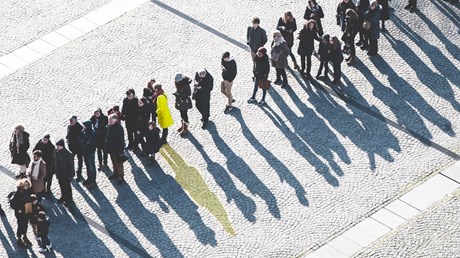Our confidence in the gospel spurs us to serve our communities, not to shrink back when they decide they no longer need us.

As the Catholic writer Joseph Bottum has observed, we live in an anxious age.
In an increasingly diverse and rapidly changing culture, some people are anxious about shifting cultural norms, civil rights, and religious liberty. The past decade has seen a rapid transformation in public opinion and legal norms around sexuality, same-sex marriage, transgender rights, and religion in the public square—changes that have caused anxiety for a great number of traditional religious believers, including Christians, Muslims, and Orthodox Jews.
Socioeconomic disparities create other anxieties. Some people have been left jobless or underemployed by the global economy. Others confront inadequacies in housing, education, and health care in impoverished and often segregated neighborhoods and communities. And people wonder why those with greater means are indifferent to the financial burdens of the lower and middle classes.
There is, of course, an even more dire anxiety that emerges when some people prove incapable of living with our differences. In the past few years, violent men have taken innocent lives in places including a Sikh temple in Wisconsin, the apartment of a Muslim family in North Carolina, a black church in Charleston, and just last week, a gay nightclub in Florida. In each of these instances, vulnerable communities became the intentional targets of mass violence, leaving others in those communities wondering about their own safety and sense of belonging in this country.
How should Christians in the United States bear witness in an anxious age? We start by understanding the context in which we live. That begins by understanding the context from which we have come and the ways in which that context has contributed to some …
Source: Christianity Today Most Read